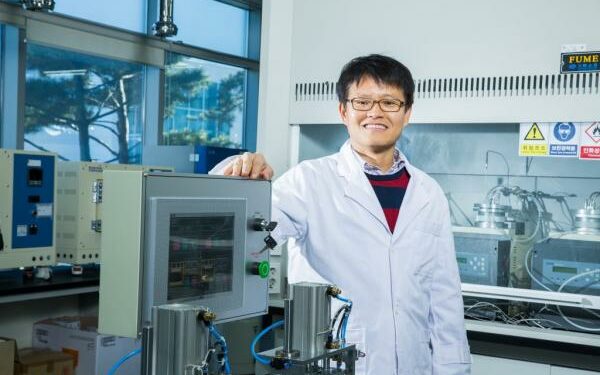A new eco-friendly battery using salt water is being jointly developed and commercialised by three Korean research organisations.
The new battery collects sodium ions from seawater during charging and stores them in the cathode. Then during discharge the anode releases sodium, which reacts with water and oxygen to form sodium hydroxide.
This produces electricity without auxiliary loads or an external power supply, meaning it could be applied on both residential and industrial scales.
The project’s consortium consists of Korea Electric Power Corporation (KEPCO), Korea East-West Power Company Ltd. (EWP), and the Ulsan National Institute of Science and Technology (UNIST).
UNIST has signed a memorandum-of-understanding with KEPCO and EWP to set up the joint research on commercialisation of the seawater battery in last week.
The consortium will establish a testing facility to produce the batteries, and plan to build a 10Wh seawater battery pack at Ulsan Thermal Power Plant, South Korea by 2018.
Compared to the lithium-ion batteries, the consortium believes the seawater battery will be more ‘cost-effective’, and safer than lithium-ion, but with relatively low electric power, according to UNIST’s report.
To enhance the battery charge rate by 20Wh, the study will design different sizes of cells and shapes and standardise procedures of battery.
The Korean government has granted ₩7 billion ($6.1 million) to UNIST since the research started in 2014. ₩3 billion ($2.6 million) and ₩2 billion ($1.8 million) will be respectively granted to the project by KEPCO and EWP by 2019 and 2018.
Professor Youngsik Kim of Energy and Chemical Engineering at UNIST is optimistic of his batteries ability to take on lithium-ion and lead-acid.
He said: “Once this battery is commercialised, we can lead the ₩47 trillion ($41 billion) worth, advanced energy storage devices market.”
Professor Kim’s venture, ‘4 to One’ has been producing and selling coin-shaped seawater batteries and test kits.
Professor Kim has also transferred the solid ceramic electrolyte synthesis technique, one of the core materials of the seawater batteries, to a local SME, Ce&Chem Co. Ltd. in 2015.
That company now produces more than 100,000 solid ceramic electrolytes a year.












